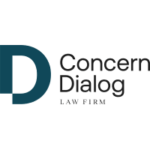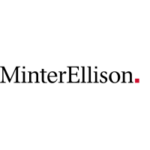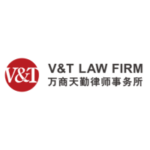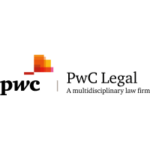-
What are the main methods of resolving disputes in your jurisdiction?
If an informal resolution of the dispute is not possible, then in-court litigation is usually the main method of resolving commercial disputes in Luxembourg. The court which is competent as a principle is the District court (Tribunal d’arrondissement). There are two District courts in Luxembourg, one in Luxembourg-city and one in the city of Diekirch, with separate geographical jurisdiction. These District courts have specialised commercial chambers or judges, which deal with commercial cases and disputes, as well as insolvency and reorganisation procedures. They render judgements (jugements). While this is the general rule, some exceptions are important in practice; for instance, the competent court for disputes relating to commercial leases is the magistrate’s court (justice de paix), irrespective of the amount involved.
Arbitration also exists in Luxembourg for commercial disputes. However, pursuant to article 1225 of the New Code of Civil Procedure (Nouveau Code de procedure civile or “NCPC”), arbitration is forbidden in the context of consumer or labour law disputes. The arbitration provisions of the NCPC have recently been modernised by a law of 19 April 2023 which applies to both national and international arbitration procedures. Also, the Luxembourg Chamber of Commerce has been hosting an arbitration centre since 1987 and modernised its arbitration rules in 2020. As such, we expect an increase in arbitration as a method to resolve commercial disputes in the coming years.
Mediation processes are less frequent. They can be initiated to solve commercial disputes, either by the disputing parties themselves, upon proposal of a court, or ordered by a court upon request of a party. If the parties reach an agreement, the mediation agreement can be homologated by the President of the District court upon request of any party thereto to make it enforceable.
In the specific field of financial services, the financial sector regulation authority (the Commission de Surveillance du Secteur Financier or “CSSF”) is competent as an alternative dispute resolution entity by receiving complaints from customers (natural or legal persons) of the professionals subject to the supervision of the CSSF. The CSSF communicates its decision to the parties and invites them to settle their dispute accordingly.
-
What are the main procedural rules governing litigation in your jurisdiction?
Court procedural rules are generally governed by the NCPC in addition to some other specific laws relating mainly to the procedure before the supreme court (law of 18 February 1885 on recourses and cassation procedure, as amended), and to reorganisation measures for distressed companies (law of 7 August 2023 on the preservation of companies and modernisation of insolvency proceedings).
The NCPC contains a title on the directing principles of litigation (principes directeurs du procès).
Under the principle of adversarial proceedings (principe du contradictoire, article 63 of the NCPC), no party can be judged without having been called or heard. This principle entails specific rules relating to the timeliness and sincerity of communication of arguments and evidence, and also the rule that no party has the right to communicate with the court without also involving the other party(ies). There is a temporary derogation to the principle of adversarial proceedings, provided under article 66 of the NCPC, for orders obtained upon unilateral request that require an effect of surprise against the other party (i.e. in case of freezing orders and similar procedures).
Other principles, as underlined by Luxembourg doctrine, include: (i) the principle of initiative (the parties initiate and end the proceeding as well as the scope of their claims), (ii) the principle of dispositive jurisdiction (the parties have control over the facts but also the responsibility to evidence them) and (iii) the principle of jurisdiction (the judge rules on the law and is not bound by the legal qualification from the parties).
In commercial matters, the plaintiff generally has an option to initiate the trial as an oral (“commercial”) procedure or as a written (“civil”) one.
Under the oral procedure, parties may be represented by themselves, by their lawyer, by a representative or by a family member. Trials involve as a principle only one hearing to plead their arguments. Any supporting evidence or document must be communicated to the other party prior to such hearing. It is also possible for parties to exchange pleading notes in advance of the hearing.
Under the written procedure, the parties can only be represented by a fully qualified lawyer (Avocat à la Cour). In the preliminary phase known as the instruction phase (mise en état), the court independently sets a calendar and deadlines for written findings and evidence to be exchanged between the parties. The court then renders an order to close the instruction phase and sets a date for a pleading. The pleading is usually brief as lawyers can decide to simply defer to their own written findings. The written procedure is generally chosen for more technical or complex cases but implies a much longer delay between the initiation of the trial and the final decision compared to the oral procedure.
For some matters, however, there is no option between the oral and the written procedure, such as for summary procedures (référés) and lease disputes, where it is always an oral procedure, and seizing procedures, where the confirmation by a judge is always a written procedure. Similarly, the procedure before the Court of cassation and the Court of appeal is a written procedure (except before the latter for summary cases).
-
What is the structure and organisation of local courts dealing with claims in your jurisdiction? What is the final court of appeal?
In Luxembourg, the District court is the court of general jurisdiction for commercial matters and hears all cases for which jurisdiction is not expressly assigned to another court due to the nature or amount of the claim. In particular, it has jurisdiction ratione valoris for claims in excess of EUR 15,000 and for claims whose amount cannot be determined. The two District courts are located respectively in the cities of Luxembourg and Diekirch. In Luxembourg, the District court has 15 chambers, three of which are specialised in commercial matters (2nd, 6th and 15th) while in Diekirch, the court is composed differently depending on the nature of the case. For lower value claims, under EUR 15,000, and for lease disputes, it is the magistrate’s court (tribunal de paix), with only one sitting judge, which is competent.
Appeals are judged either by the Court of appeal (Cour d’appel) or the District court (if the first degree decision has been rendered by a magistrate’s court. In commercial matters, the final court of appeal is the Court of cassation (Cour de cassation), which only decides on the interpretation and application of the law and does not decide on factual aspects. There is, in Luxembourg, no equivalent of a leave for appeal (i.e. no permission or authorization is required by the appellate court to file an appeal).
-
How long does it typically take from commencing proceedings to get to trial in your jurisdiction?
There are different stages in the initiation of a trial.
First, there is a minimum delay between the commencement of legal proceedings, by way of petition to a court (requête) or by way of writ of summons (assignation), and the first hearing of the case, which is in principle not a pleading per se but a mere formal hearing (fixation) for parties to present themselves. The NCPC provides different delays depending on the type of procedure. In commercial cases before the District court, the minimum delay is fifteen days. In summary proceedings, the NCPC only requires “a sufficient time for the defendant […]to prepare its defense”, which in practice can range from less than 24 hours to a few days only.
A “distance delay” is applicable if the defendant resides outside of Luxembourg. 15 more days for defendants residing elsewhere in the European Union or in an European Economic Area member states, and either 25 or 35 more days for other states.
Second, there are delays between the first formal hearing in an oral procedure and the actual pleading date. In substantial cases, the delay can in practice be between a couple and several months. In a written procedure, the court grants delays to file written statements which range from two weeks to two months, and allow several exchanges between the parties, so that the delay between the first procedural hearing and the final pleading can be in excess of a year.
-
Are hearings held in public and are documents filed at court available to the public in your jurisdiction? Are there any exceptions?
Commercial hearings are held in public, except if the court rules that for moral or public order necessities, it should not be the case. Documents filed with the court are not available to the public.
Court decisions are not published either, although significant court rulings are published on the website of the ministry of justice through a case law database, but only after anonymisation and not immediately.
-
What, if any, are the relevant limitation periods in your jurisdiction?
The relevant limitation period in commercial matters, provided by article 189 of the Commerce code, is 10 years.
The delay to appeal a decision is also relevant: it is 40 days generally in commercial matters (including against insolvency decisions) but is reduced to 15 days for summary decisions (référés). The delay is increased for parties residing outside of Luxembourg. The starting point of the delay to appeal will, however, play an important role. Generally, it starts upon the formal service of the court decision by a party to the other through bailiff delivery (signification). For recourses before the court of cassation, the deadline is two months as from the formal service of the decision.
-
What, if any, are the pre-action conduct requirements in your jurisdiction and what, if any, are the consequences of non-compliance?
There is no such concept under Luxembourg law. In practice however, parties want to issue formal notices (mises en demeure) to their contractual counterparty before suing, because (i) this is seen as a good faith step by the courts and also because (ii) it is required in order to claim late payment interests in cases where the date for fulfilment of the relevant disputed obligation was not contractually set.
-
How are proceedings commenced in your jurisdiction? Is service necessary and, if so, is this done by the court (or its agent) or by the parties?
In most cases, proceedings are commenced by the issuance of a writ of summons (assignation), delivered formally by a bailiff (huissier). The formal delivery or the mailing of the writ is to be considered as the relevant commencement date of the proceeding, in particular for the purpose of limitation periods. The service is not only necessary but has to be formally effective and, if possible, be done in the defendant’s hands (à personne). This effective service is needed to ensure due notification of the defendant of the proceedings initiated against him.
However, the mailing or delivery of the writ by a plaintiff to the defendant is not sufficient to bring a case to the court. To formally start a case before the court, the plaintiff must enroll the case in the respective court’s docket (rôle). This enrolment of the case with the court is, as a principle, a simple administrative formality. However, the exact moment when a court procedure actually commences is sometimes disputed, e.g. for questions of lis pendens or when a plaintiff does not enrol the case.
In other cases, a petition (requête) is filed directly by the initiating party (plaintiff or requesting party) directly with the court. This is mainly the case before the magistrates’ courts or for unilateral requests, where the court makes an ex-parte first decision.
-
How does the court determine whether it has jurisdiction over a claim in your jurisdiction?
The rules of material competence are set out in articles 1 to 26 of the NCPC. The rules of jurisdiction (geographical competence) are set out in articles 27 to 48 of the NCPC. In a cross-border context, EU regulations such as the Brussels I bis Regulation (Regulation (EU) 1215/2012) are also applicable.
In practice, the plaintiff will ensure to clarify in the writ or in the petition why it considers that the court is competent (e.g. by indicating a jurisdiction clause in the relevant contract applicable to the dispute). If the defendant believes there is a reason for the court not to be competent, he or she can ask the judge in limine litis that the case be sent to the competent court pursuant to articles 259 et s. of the NCPC. Judges can also independently declare themselves incompetent over certain matters that are of the exclusive competence of other courts.
-
How does the court determine which law governs the claims in your jurisdiction?
Firstly, Luxembourg, as an EU Member State, applies the rules set by international instruments such as, for instance EU regulations on the law applicable to contractual obligations or to non-contractual liability (. Rome I and Rome II regulations, respectively).
Secondly, the Civil code contains general rules relating to the scope of application of Luxembourg law, such as articles 1 and 3 thereof.
Third, some specific statutes expressly provide rules as to their scope of application and their effectiveness. Of specific relevance for the financial sector, the law of 5 August 2005 on financial collateral arrangements, as amended, contains specific provisions governing private international law.
In practice, it is often the case that the parties to a commercial relation stipulate in their agreement which law applies to their relation.
-
In what circumstances, if any, can claims be disposed of without a full trial in your jurisdiction?
There is no way for a court in Luxembourg to simply reject a claim without any judgment.
Nevertheless, if the claim or the writ of summons is invalid, the court will generally ask the parties to exchange on that very preliminary issue only, and it will take a decision on it before proceeding with a further assessment of the case.
Hence, in this case it may be that the court decides to reject the claim on that basis, as a result for example of an absence of standing (intérêt ou qualité à agir), or for breach of a formal requirement relating to the writ of summons, or as a result of a limitation period or if the court is not competent.
Also, as a result of the principle of initiative (the parties initiate and end the proceeding), the plaintiff has the possibility to withdraw its action (désistement) at any time during the proceedings and before any judgement is rendered by the court. If the withdrawal occurs after the trial has started, such withdrawal will only be fully effective if the defendant has accepted it and the court has acknowledged it.
In practice, this happens after the parties have found an out-of-court settlement, which generally contains an undertaking to withdraw from a court action and to refrain from reviving it again in the future. When the conditions provided in the Civil code with respect to a settlement are met, including mutual concessions, such settlement has the same force as a final court decision between the parties (autorité de la chose jugée en dernier ressort).
Another way for the trial to end, this time without any decision on the case, is the expiry of the case (péremption d’instance). A rare situation in practice, this will happen if the parties to a case remain completely inactive for three years and only if the defendant asks for it.
-
What, if any, are the main types of interim remedies available in your jurisdiction?
Interim remedies are within the competence of the President of the District court, acting as summary judge (juge des référés). These powers are typically exercised under articles 932 and 933 of the NCPC.
Under article 932 of the NCPC, the summary judge can order “all measures that are not seriously contested or that are justified by the existence of a dispute” if it is urgent.
Under article 933 of the NCPC, the summary judge can prescribe “any protective measures or remedial action that may be necessary, either to prevent imminent damage or to put an end to a manifestly unlawful disturbance”, or order any investigation, or order a provisional payment.
In practice, this is often used to obtain an injunction or a prohibition, or the communication of some documents or information, or to obtain a provisional payment. A specific use of summary proceedings is found in Luxembourg company law, which allows to ask the judge to suspend resolutions of the governing body or of shareholders of a company, or to request the appointment of a judicial administrator.
Under article 350 of the NCPC, the summary judge can also prescribe investigation measures if “there is a legitimate reason to preserve or establish before any legal proceedings proof of facts on which the outcome of a dispute may depend”.
Under article 1961 of the Civil code, the summary judge can also order the placement in escrow of any asset, the ownership or possession of which is in dispute between two or more persons.
These measures are in principle obtained after serving a writ of summons on the defendant which initiates a a swift oral procedure which can even be accelerated if the President of the court allows it (référé extraordinaire).
It should be noted that the measures requested can only be temporary and should not require the judge to adjudicate a substantial point of law.
-
After a claim has been commenced, what written documents must (or can) the parties submit in your jurisdiction? What is the usual timetable?
In an oral procedure, after the writ of summons has been issued, the parties only have to exchange their evidence in a formal way. It is common practice for parties to exchange pleading notes, but although these exchanges must respect the principle of adversarial proceedings, the exchange of pleading notes is not well regulated and is conducted on a voluntary basis. In theory, only the developments made orally before the court are taken into account by the judge.
In a written procedure, the parties exchange their written statements in accordance with a calendar schedule established and monitored independently by the court. The interval period between each exchange is generally between two weeks and two months. This instruction phase (mise en état) can be ordinary or simplified (simplifiée) for disputes with only two parties and claims below EUR 100,000. Importantly, each successive written statement of each party must be comprehensive (récapitulatives or de synthèse) so the court can consider only the last one and find therein all the arguments and elements raised by each party.
-
What, if any, are the rules for disclosure of documents in your jurisdiction? Are there any exceptions (e.g. on grounds of privilege, confidentiality or public interest)?
There are no disclosure rules as there is no disclosure phase in a trial in Luxembourg. The parties are to communicate their evidence to the other party(ies) in due course and in due time to ensure compliance with the principle of adversarial proceedings. They remain, thus, free to communicate the evidence they wish to the other party, nothing more, also in compliance with confidentiality obligations as the case may be.
An exception to this is that a party may ask the court to order the other party to produce a specific document that this other party has in its possession, and the content of which is decisive for the dispute. However, courts have a strict reading of these two criteria.
-
How is witness evidence dealt with in your jurisdiction (and in particular, do witnesses give oral and/or written evidence and what, if any, are the rules on cross-examination)? Are depositions permitted?
Witness evidence in civil and commercial trials most often takes the form of written statements (attestations) submitted to the court among other evidence. A written statement should comply with the formalities set out under articles 401 and 402 of the NCPC. The written statement should also be limited to facts that the author has personally witnessed (not opinions) and should disclose any link between the author and the parties to the trial (subordination, collaboration, community of interests).
Witness evidence can also take the form of an oral declaration from the witness to the court. The party intending to present a witness must first make a written offer of proof to the court, explaining why the content thereof will be pertinent for the case. The court can refuse this offer, by a motivated decision. If it accepts it, the judge itself will minute the declarations of the witness.
There is no cross-examination procedure formally provided for in the NCPC. However, the parties can submit to the judge questions that they wish the judge to ask to the witness (article 414 NCPC). Also, the other party is entitled to produce its own witnesses, through a counter-investigation process which is organised by the same decision accepting the initial witness hearing.
A common feature of written and oral statements is the power of the court, who assesses the facts, to determine the consequences of the witness evidence on the dispute at hand, and the probative force of the witness statements.
-
Is expert evidence permitted in your jurisdiction? If so, how is it dealt with (and in particular, are experts appointed by the court or the parties, and what duties do they owe)?
Expert evidence is important in the Luxembourg litigation practice. Its regime is organised by articles 432 et s. of the NCPC. The expert is appointed by the court, upon request by one of the parties or spontaneously by the court. The court determines, by way of interim judgement, the scope and nature of the investigations to be performed by the expert which can take the form of a consultation, report (constatation) or expertise. The expertise process must comply with the principle of adversarial proceedings, with both parties involved in the exchanges with the expert, and with an adversarial exchange before the judge upon rendering of the expert’s findings.
The parties can also agree between themselves to appoint an expert; if the expertise process also complies with the principle of adversarial proceedings, then the expert’s findings will be treated as if the court had mandated the expert.
In all cases, the expert must display impartiality and objectiveness.
One party can also appoint an expert unilaterally and submit the findings to the court; the court will be able to rely on it as well if the findings are submitted to open and adversarial discussion between the parties and comply with the above principles.
However, the expert’s findings are not automatically decisive for the dispute. First because the court is not bound by any legal aspects raised in his findings; second because the probative value of the expert’s findings as to facts and technical aspects is not absolute. Indeed, the parties can challenge the findings of the expert; also, the court itself can consider, if there are just and reasonable grounds, that the expert was mistaken.
-
Can final and interim decisions be appealed in your jurisdiction? If so, to which court(s) and within what timescale?
Final decisions can be appealed in Luxembourg: the delay is 40 days generally in commercial matters (including against insolvency decisions), but is reduced to 15 days for summary decisions (référés). The delay is increased for parties residing abroad. The starting point of the delay to appeal will, however, play an important role. Generally, it starts upon the formal service of the first decision by a party to the other through bailiff delivery (signification).
Some interim or preliminary judgements can be appealed immediately, i.e. where the court adjudicates on a part of the merits and orders an investigation measure (jugements avant dire droit). However, purely preliminary judgements, which do not adjudicate on any part of the merits of the case, can only be appealed later, together with the final court decision.
-
What are the rules governing enforcement of foreign judgments in your jurisdiction?
The situation differs depending on the country of origin of the foreign judgment.
If the foreign jurisdiction is not bound to Luxembourg by any international instrument, then a written court proceedings before the Luxembourg District Court known as exequatur will be necessary, in which parties affected by the foreign decision must be summoned by means of a writ, before such foreign decision can become enforceable in Luxembourg. If the jurisdiction is bound to Luxembourg by an international instrument which nevertheless requires a court procedure, a lighter exequatur procedure will still be needed, by way of a unilateral petition to the President of the District court.
If the jurisdiction rendering the foreign judgement is an EU Member State, Regulation (EU) 1215/2012 will apply and the foreign judgement will, in accordance with the terms and conditions of this Regulation, be directly applicable in Luxembourg. On that basis, a bailiff may be directly mandated to enforce it or to seize the assets of a debtor (article 685-4 of the NCPC).
-
Can the costs of litigation (e.g. court costs, as well as the parties’ costs of instructing lawyers, experts and other professionals) be recovered from the other side in your jurisdiction?
In principle, each party bears it costs. However, there are two exceptions.
Under article 240 of the NCPC, where it appears inequitable to leave a party to bear the sums incurred by it and not included in the general costs, the court may order the other party to pay such amount as it may determine.
In addition to this, Luxembourg case law provides that the recourse to a lawyer and the related fees can constitute a separate prejudice, to be compensated on the legal basis of extra-contractual tort liability (article 1382 of the Civil code). This is however not frequent and requires establishing a specific fault from the other party, the reality of the prejudice suffered (including actual payment of fees) and causation.
-
What, if any, are the collective redress (e.g. class action) mechanisms in your jurisdiction?
Class actions do not exist in Luxembourg for commercial or civil cases.
While several plaintiffs may act together, this does not trigger any specific procedural regime or collective redress principles.
-
What, if any, are the mechanisms for joining third parties to ongoing proceedings and/or consolidating two sets of proceedings in your jurisdiction?
A third party may be joined to a case by way of summons to intervene as defendant (assignation en intervention forcée) or join an existing case on its own move (intervention volontaire). In both cases, it concerns only those who could have formed a third-party opposition against the judgement (article 594 NCPC), i.e. those whose rights are affected by it (article 612 NCPC).
A court can join several cases together upon request of a party, if this is in the interest of a better administration of justice, e.g. to facilitate debates or to avoid the risk of contradictory judgements. The decision to join cases or not, is an administrative decision that cannot be appealed.
-
Are third parties allowed to fund litigation in your jurisdiction? If so, are there any restrictions on this and can third party funders be made liable for the costs incurred by the other side?
Third party funding is allowed given the absence of rules on the matter.
The only practical restriction is that clauses allowing a third person to control a procedure on behalf of a party are generally not enforceable.
-
What has been the impact of the COVID-19 pandemic on litigation in your jurisdiction?
Many formal hearings previously requiring the physical presence of lawyers for administrative purposes have been replaced by more efficient email correspondence between lawyers and court clerks.
Additionally, lawyers are now required to confirm their intention to plead a case at least one week in advance. This is a major improvement compared to the previous situation as it saves a lot of time for lawyers given that they no longer need to prepare and attend a hearing only to find out on that it has been postponed.
These two practices developed during Covid and have been maintained since then.
-
What is the main advantage and the main disadvantage of litigating international commercial disputes in your jurisdiction?
The primary advantage lies in the Luxembourg ecosystem itself. Luxembourg is one of the main financial centres in Europe and is a highly international jurisdiction where legal professionals from diverse legal cultures and languages collaborate. Lawyers, experts and judges are deeply familiar and exceptionally skilled in handling international situations and complex cases, particularly in financial matters.
Notably, judges can accept evidence in French, German, Luxembourgish and English without the need for translation. As most judges are former lawyers by training, this helps them to have a pragmatic and effective approach to the cases that are brough before them. Luxembourg is widely recognized as one of the most English-friendly and flexible civil law jurisdictions in continental Europe.
Additionally, compared to other jurisdictions, court costs in Luxembourg are remarkably low, making it an economically advantageous choice for legal proceedings.
The main disadvantages are linked to (i) the duration of written procedures, which can be avoided by initiating an oral procedure, and to (ii) the absence of systematic and complete compensation of lawyers’ costs for the succeeding party.
-
What is the most likely growth area for commercial disputes in your jurisdiction for the next 5 years?
Litigation related to e-commerce, to transactions effected via Distribution Ledger Technologies (DLT) as well as disputes related to Fintech service providers is expected to grow significantly.
Additionally, the recent and highly anticipated enactment of a new, modern framework for the reorganization of distressed companies is likely to result in an increased volume of cases.
-
What, if any, will be the impact of technology on commercial litigation in your jurisdiction in the next 5 years?
One could expect the development of rules and case law regarding evidence and probative force of DLT in the conclusion and performance of contracts.
Also, a certain degree of dematerialization of procedures will probably become inevitable and have a substantial impact on litigation.
The use of AI to predict court decisions will be a decisive factor, while Luxembourg may by reason of its size be less impacted by this evolution.
Luxembourg: Litigation
This country-specific Q&A provides an overview of Litigation laws and regulations applicable in Luxembourg.
-
What are the main methods of resolving disputes in your jurisdiction?
-
What are the main procedural rules governing litigation in your jurisdiction?
-
What is the structure and organisation of local courts dealing with claims in your jurisdiction? What is the final court of appeal?
-
How long does it typically take from commencing proceedings to get to trial in your jurisdiction?
-
Are hearings held in public and are documents filed at court available to the public in your jurisdiction? Are there any exceptions?
-
What, if any, are the relevant limitation periods in your jurisdiction?
-
What, if any, are the pre-action conduct requirements in your jurisdiction and what, if any, are the consequences of non-compliance?
-
How are proceedings commenced in your jurisdiction? Is service necessary and, if so, is this done by the court (or its agent) or by the parties?
-
How does the court determine whether it has jurisdiction over a claim in your jurisdiction?
-
How does the court determine which law governs the claims in your jurisdiction?
-
In what circumstances, if any, can claims be disposed of without a full trial in your jurisdiction?
-
What, if any, are the main types of interim remedies available in your jurisdiction?
-
After a claim has been commenced, what written documents must (or can) the parties submit in your jurisdiction? What is the usual timetable?
-
What, if any, are the rules for disclosure of documents in your jurisdiction? Are there any exceptions (e.g. on grounds of privilege, confidentiality or public interest)?
-
How is witness evidence dealt with in your jurisdiction (and in particular, do witnesses give oral and/or written evidence and what, if any, are the rules on cross-examination)? Are depositions permitted?
-
Is expert evidence permitted in your jurisdiction? If so, how is it dealt with (and in particular, are experts appointed by the court or the parties, and what duties do they owe)?
-
Can final and interim decisions be appealed in your jurisdiction? If so, to which court(s) and within what timescale?
-
What are the rules governing enforcement of foreign judgments in your jurisdiction?
-
Can the costs of litigation (e.g. court costs, as well as the parties’ costs of instructing lawyers, experts and other professionals) be recovered from the other side in your jurisdiction?
-
What, if any, are the collective redress (e.g. class action) mechanisms in your jurisdiction?
-
What, if any, are the mechanisms for joining third parties to ongoing proceedings and/or consolidating two sets of proceedings in your jurisdiction?
-
Are third parties allowed to fund litigation in your jurisdiction? If so, are there any restrictions on this and can third party funders be made liable for the costs incurred by the other side?
-
What has been the impact of the COVID-19 pandemic on litigation in your jurisdiction?
-
What is the main advantage and the main disadvantage of litigating international commercial disputes in your jurisdiction?
-
What is the most likely growth area for commercial disputes in your jurisdiction for the next 5 years?
-
What, if any, will be the impact of technology on commercial litigation in your jurisdiction in the next 5 years?




























